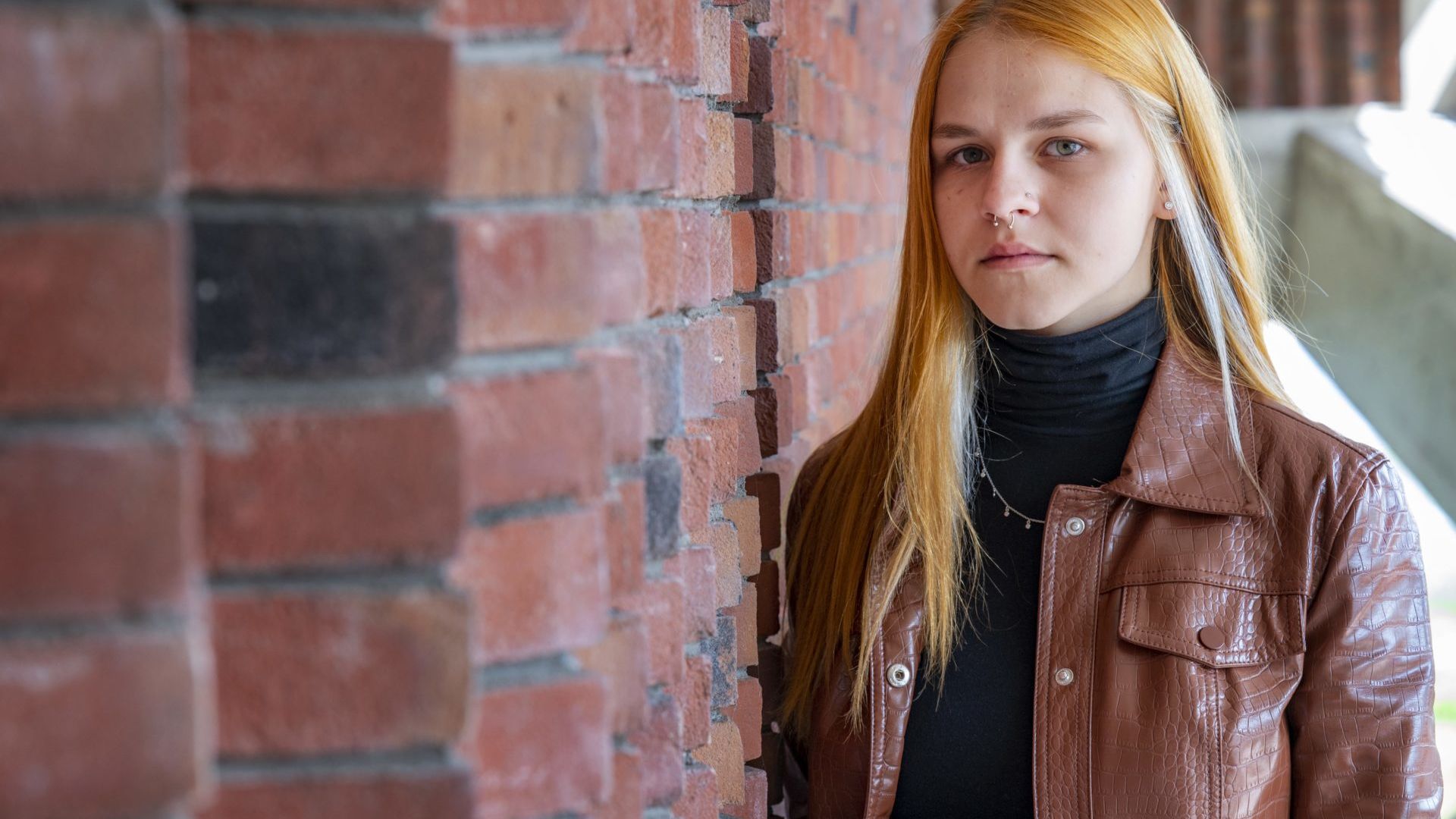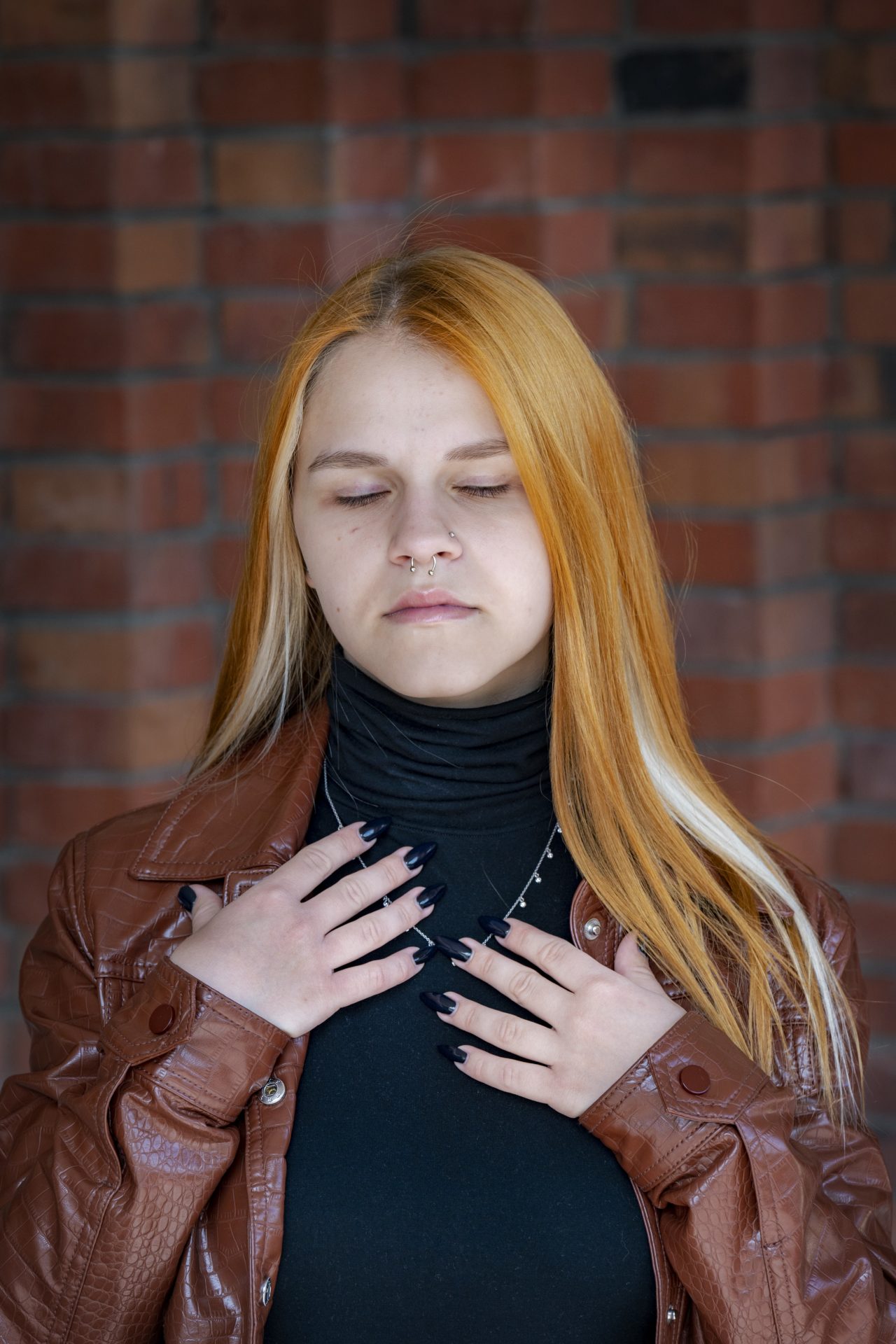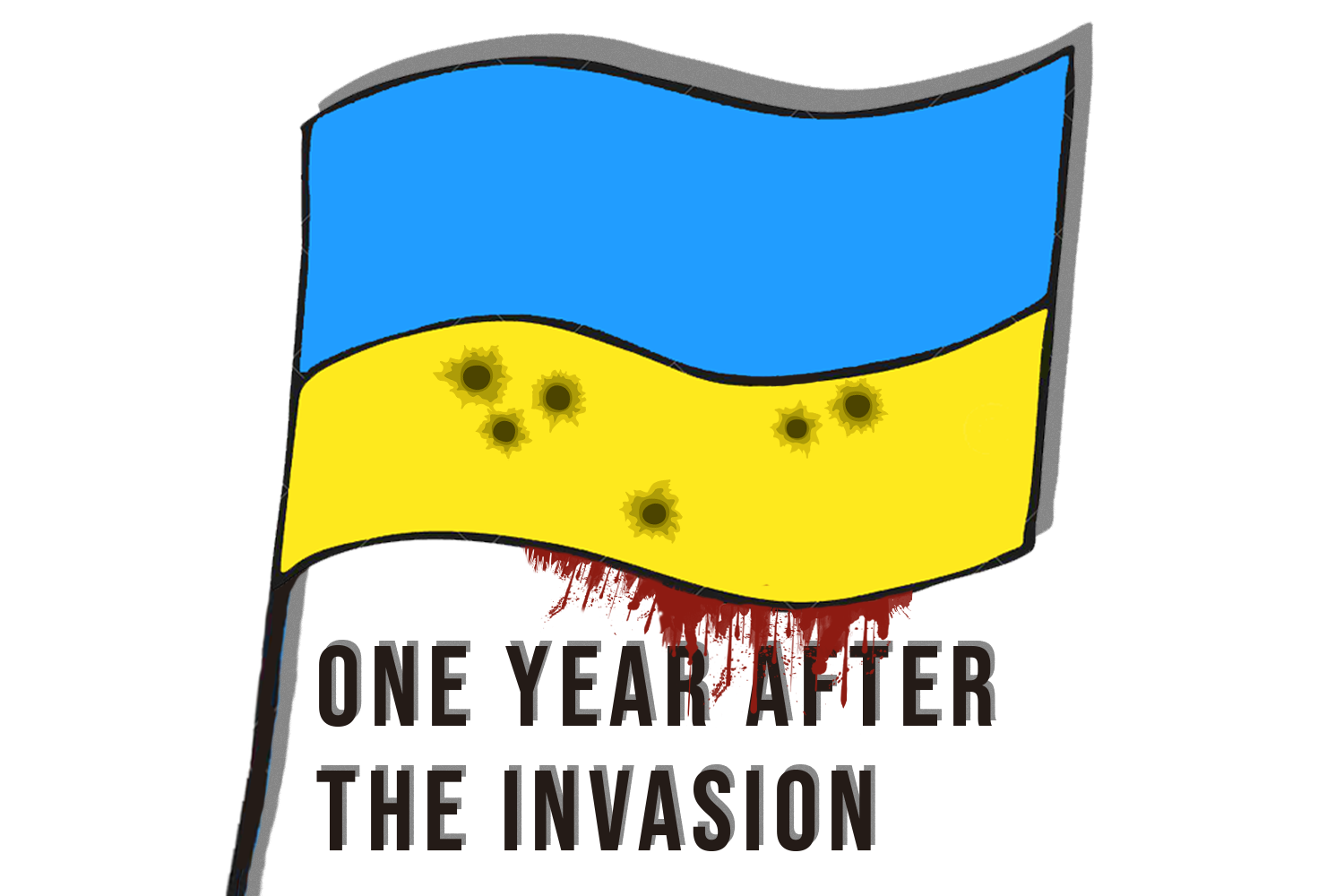One year after the invasion (4): Little remains of the Nijmegen dreams of Ukrainian Sofiia
-
 Sofiia Shtohryn Foto: Bert Beelen
Sofiia Shtohryn Foto: Bert Beelen
One-and-a-half years ago, the Ukrainian Sofiia Shtohryn (18) came to Nijmegen with high expectations. Finish a study here, live the Nijmegen student life: little came of it in the end. Almost a year after the start of the war in Ukraine, she looks back at everything that has happened.
For Sofiia Shtohryn, it is already difficult to answer the seemingly simple question ‘how are you doing?’ these days. She shrugs her shoulders and throws her arms in the air defeated. She sighs. ‘Well, I don’t know. It changes from day to day, I guess.’
Because it was a difficult year. Extremely difficult. The Ukrainian did not expect her biology studies in the Netherlands to be this difficult when she started at Radboud University in September 2021.
Mother and grandmothers fled
The first six months of her studies go smoothly. Shtohryn is eager to learn and tries her utmost best. She passes her exams with good grades and has plenty of friends. She also calls her parents often. Her family lives in Chernihiv, near Kyiv and the Russian border. During the Christmas break, the teenager even goes home and toasts the new year with her parents.
It would be the last time she sees her father for the time being. In February 2022, Russia invades Ukraine, and a full-scale war breaks out. While in Nijmegen, Shtohryn tries to keep track of everything. She checks the news constantly; contact with her parents is unsure because of failing electricity.
Eventually, in the spring, her mother and grandmothers flee to Nijmegen. Her father and stepfather are not allowed to leave the country because of the general mobilization, although they are not drafted in the end.
Once here, Shtohryn finds a place for her three family members after a long search. They now live with a man who lets the family live in his house.
In the meantime, she continues to study while staying in her student room. Making ends meet financially is difficult, however, as her mother can no longer work: she had her own business in Ukraine, but managing one in the Netherlands is almost impossible due to regulations.
Guilt
That situation, almost a year later, still gives her plenty of headaches. ‘I would love to finish my bachelor’s in biology in Nijmegen and then do a master’s, but I don’t know if that is possible’, she says.
‘If the tuition is reduced (which it was for Ukrainian students last year, ed.), it is possible. Because that saves me almost 10,000 euros. But otherwise not. And what can I do when that happens? Going back to Ukraine is too dangerous, but I can’t stay here either. I make no money, so I would lose my room. Sadly, I am not getting any clear information about this and that gives me a lot of stress.’
‘I feel guilty for feeling this bad, even though I have not experienced the war up close’
At the same time, she also feels tremendous guilt. ‘I have what is called survivor’s guilt. I feel guilty for feeling this bad, even though I have not experienced the war up close. It feels unfair that I’m safe.’
One year after the invasion
On 24 February, it is exactly one year ago that Russia invaded their neighbouring country Ukraine. In a series of articles on Vox, students and employees talk about how the war has become a part of their life.
Shtohryn would like to go to therapy to process everything, but that is easier said than done. She needs Dutch healthcare insurance for that, which she can only receive when working. ‘So now I need to find a job to go a psychologist. But I need to see a psychologist precisely because it is all too much for me. I have no idea what to do.’
Homesickness
And then that homesickness. That great homesickness. When she thinks back to a Ukrainian concert in Breda she attended not long ago, her eyes well up with tears.
‘There’s really no way to describe what it’s like to be with so many people who speak your language’, she says, wiping away a tear. ‘Sharing memories, listening to the music. There was also a Ukrainian soldier present who had lost his legs in the battle. That made me so emotional.’
Everything in Nijmegen reminds her of her homeland. A walk along the river Waal? When she closes her eyes, that feels just like a trip to port city Odesa, near the Black Sea. That one tree in the city centre? That reminds her of a tree just around the corner of her parents’ house.
Do not underestimate
On top of that, the war has lasted much longer than she originally thought. In February 2022, Shtohryn expected one, at most two months of violence. ‘Yes, that was probably very naive. Yet I really believed that. That is why I no longer dare thinking about the future. You don’t know what to expect.’
For now, Shtohryn will stay in the Netherlands until this summer to finish her academic year. She hopes for a reduction in tuition fees so she can stay. And she hopes for more support from the European Union, so Ukraine can continue to defend itself.
‘Please do not forget about us’
And, above all, she hopes that that no one underestimates what it is like for Ukrainians. Whether you came from a war zone or not. ‘I understand that not everyone thinks about the war every day anymore. That is not feasible either. But: please do not forget about us.’





